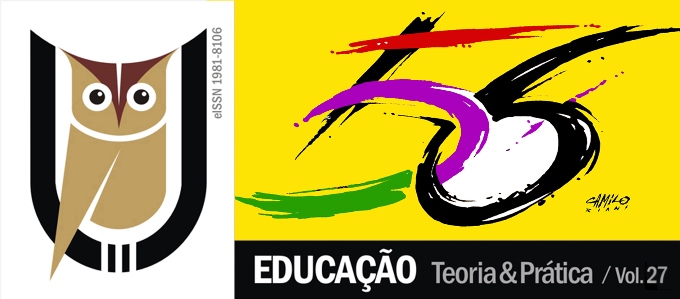INTEGRAL EDUCATION: SUBJECTIVE PUBLIC RIGHT
DOI:
https://doi.org/10.18675/1981-8106.vol27.n56.p575-591Keywords:
Educação Integral, Planejamento Participativo, Estado Social de DireitoAbstract
The idea of integral education involves multiple possibilities of comprehension, particularly in policies, programs, projects, among other aspects of the organization of educational space, related to the expansion of the time that students spent in educational activities, which in turn, serve a particular state model. This article aims to analyze the idea of integral education from the perspective of the formation of the subject of law. Initially we present the model of the social state of law as prescribed in the Constitution of the Federative Republic of Brazil, in October 1988, as a reference to the definition of the three constituent premises of integral education: full development of the person, preparation for the exercise of citizenship and qualification for work. After that, explore the basic features of participatory planning, which is essential for the conduct of integral education in educational spaces. Considering that education in the perspective of the formation of the subject of law, must meet the integrality of the human being, this study contributes to the construction of conceptual framework of the integral education. Keywords: Integral Education. Participatory Planning. Social State of Law.Published
How to Cite
Issue
Section
License
Authors who publish in this journal agree to the following terms:
a) Authors assign copyright to the journal, with the work simultaneously licensed under the Creative Commons Attribution License that allows sharing of the work with acknowledgment of authorship and publication in this journal.
b) The policy adopted by the Editorial Committee is to assign copyright only after a period of 30 months from the date of publication of the article. After this time, authors interested in publishing the same text in another work must send a letter to the Editorial Committee requesting the release of the assignment of copyright and wait for a response.
c) This journal provides public access to all its content, since this allows greater visibility and reach of published articles and reviews. For more information on this approach, visit the Public Knowledge Project, a project that developed this system to improve the academic and public quality of research, by distributing OJS as well as other software to support the public access publication system to academic sources. The names and email addresses on this website will be used exclusively for the purposes of the journal and will not be available for other purposes. This journal provides open any other party  This work is licensed under a Creative Commons License
This work is licensed under a Creative Commons License


